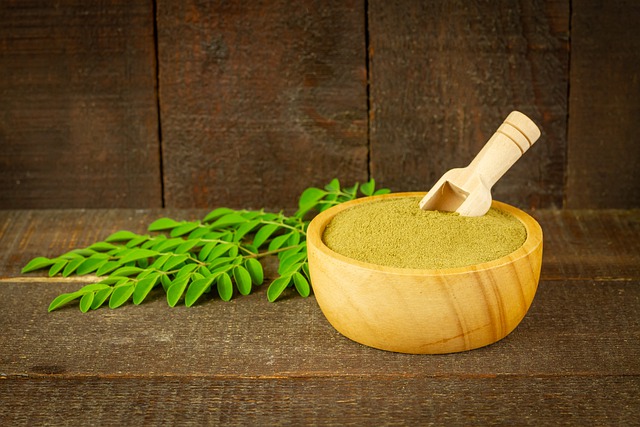Words: Dr Yusuf Mikail OLATUNJI
Moringa oleifera is the popular drumstick tree. It belongs to the moringalea family native to India. It is also found in Pakistan, Bangladesh, Afghanistan, and Africa. The tree, in its completest form, can grow up to a height of 5-10m.
Moringa possesses an extremely rich seed, edible leaves, and flowers; they are endowed with food, medicinal and cosmetic properties.
The positive effects of moringa have been discovered over time, more so because it is a nutrient-rich vegetative edible plant with a long history — a much sought after victual and embellishment in practically every cuisine.
Moringa is considered a useful preventative — to avoid disease. However, Western, or conventional, medicine has not yet pursued its dietary and medicinal potential to the whole extent.
It is suggested to that moringa has anti-inflammatory, anti-ulcer, anti-diabetic, hepatoprotective [liver protective], diuretic and also cholesterol reducing capacity.
A daily intake of moringa provides not only adequate energy, but also a real-time antioxidant boost to our immune system — this is useful to prevent, or ward off, illness, or disease.
Moringa comprises of several healthy nutrients:
- Vitamin A
- Vitamin B1 [Thiamine]
- Vitamin B2 [Riboflavin]
- Vitamin B3 [Niacin]
- Folate, and ascorbic acid [Vitamin C]
- Calcium
- Potassium
- Iron
- Magnesium
- Phosphorous
- Zinc.
Fact-File
- Moringa contains 17 times more calcium than milk
- Moringa leaves have four times more beta-carotine than carrots
- It has twice the protein and 15 times more potassium than banana
- Moringa tree contains 92 nutrients and 46 antioxidants
- It has more vitamin C than seven oranges
- It is a far better source of iron than spinach, Popeye’s favourite super-food
- It contains nine essential and non-essential amino acids.
The Moringa Catalogue
- Protection and nourishment of hair and skin. Moringa’s oil constituent when adequately applied to the hair protects it from germs; it also keeps it clean and healthy. The protein in its leaves is useful for protecting skin cells from damage. Moringa has hydrating and detoxifying elements too — this can help boost hair health and ease skin infections.
- When fluids build-up in the body tissues, a ‘swollen’ effect often follows. This condition is known as oedema. Moringa is suggested to be useful in preventing oedema.
- Breast milk. Research has shown that moringa intake could increase the production of breast milk, albeit how this effect emerges is not yet clear.
- The severity of certain asthma attacks could be greatly reduced by the use of moringa. Bronchial constrictions can also be protected against from its use. Moringa may, likewise, be useful in improving lung function and overall breathing rate, or capacity, when consumed on a regular basis.
- Tummy aches and other disorders. Extracts from moringa have been found to be useful in the treating stomach disorders, including constipation, gastric and ulcerative colitis. The growth of harmful pathogens may also be prevented, thanks to its antibiotic and anti-bacterial properties. Its high vitamin B content is also suggested to play a useful role in digestion.
- Moringa helps to ‘clear’ accumulated glucose in the blood, along with sugar and protein clustered in the urine. This positive effect may lead to increased haemoglobin levels and overall protein content in diabetics.
- Bone health. Moringa contains calcium and phosphorous whose primary function is to help keep bones strong and healthy. Moringa has natural anti-inflammatory properties. It can be applied in arthritis; it may also be used to heal damaged bones.
- Other benefits. Moringa is low in fat; besides, it can lower our cholesterol levels, while potentially reducing the threat of heart disease. It also has the ability to decrease inflammation and reduce pain.
Food For Thought
When the leaves, fruits and seeds of moringa are eaten as food, it is quite safe. When its leaf and seed are orally taken as medicine, it is probably safe too. However, when moringa root and root extracts are taken in excess, it may be unsafe in certain individuals.
Moringa oleifera should be avoided in:
- The root, bark, or flowers of moringa may cause serious contractions of the uterus. Traditionally, the root and bark of moringa have been used to induce miscarriage. Pregnant women are, therefore, advised to stay off moringa.
- Although it is used to increase the production of breast milk, the effect of moringa on infants is not yet known. Hence, it would be discreet to avoid moringa when breastfeeding.
Moringa oleifera should not be taken alongside certain medications.
- Levothyroxin is used to treat thyroid problems. Compounds present in the leaf of moringa may aid the function of thyroxin; however, a combination of moringa and other medications should be avoided.
- Medications broken down by the liver. The speed at which the liver breaks down certain medications may be drastically reduced by moringa, especially its extracts; this may result in several side-effects.
- Anti-diabetic medications. When certain diabetes medications are taken alongside moringa, it may cause blood sugar levels to drop too low.
- High blood pressure. Moringa is a natural high blood pressure ‘reducer.’ When it is taken alongside blood pressure medications, blood pressure levels of patients need to be monitored, because it can sometimes lead to abrupt, or extremely low blood pressure levels.
Conclusion
Moringa has a host of positive healthy benefits. It also has its relative downside. The best thing to do to derive its good effects — naturally, and as a supplement — is to consume it smartly, and also usefully, in consultation with your holistic physician, or therapist.

